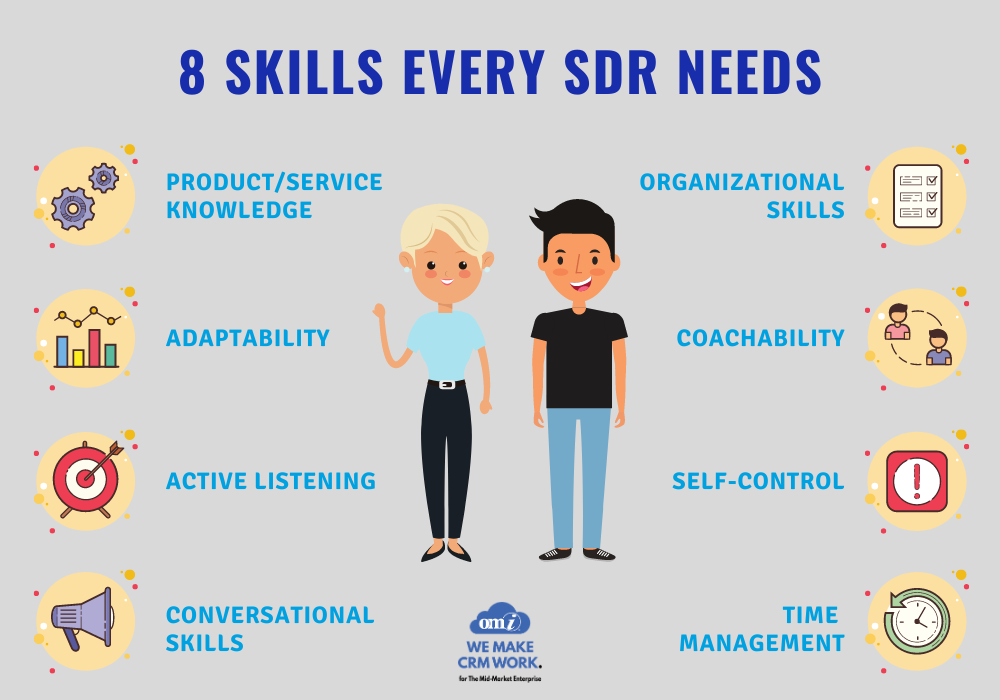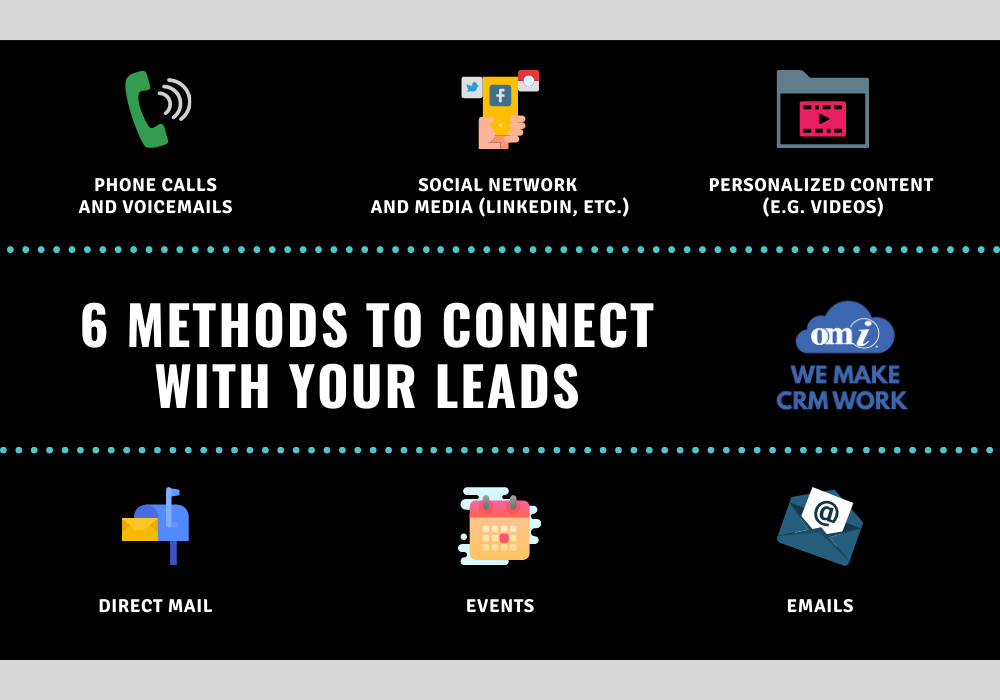Sales development is the combination of important business processes that act as the main driving force for your sales. Without a properly established sales development department, your business has fewer chances to reach out to your key customers and boost sales rates. We’ve interviewed several sales development representatives (SDR) in Fortune 500 enterprises to understand the SDR role and how their job affects your company’s results. Starting from today, we’re launching a series of articles related to SDR. In this post, we will explain what an SDR is in sales and how it benefits your business.
Who Is a Sales Development Representative?
“Sales Development Representative (SDRs) are the tip of the spear when it comes to reaching out to prospective clients and introducing them to the solution. SDRs try to start initial conversations with these prospects through calling, emailing, and connecting through social networks. SDRs are compensated based on how many of these conversations they’re able to start”, says one of our interviewees.
SDR or a sales development representative is the one person who is responsible for research, prospecting, and lead qualification. To put it shortly, sales development reps don’t focus on closing deals but connect your marketing and sales teams to enable a more efficient outreach process. Their main goal is to identify whether generated leads fit your business or not and provide sales reps with more detailed information on how it’s better to reach these potential customers.
Sales Development Representative: Job Description
So what does a sales development representative do for your business? The sales development representative role is an entry-level position in your sales team. SDRs are responsible for filtering out leads and keeping data only on those who fit your business. As a result, sales teams don’t waste their time on leads that are no good customer fit and only outreach to leads that are likely to convert into sales.
Sales development representative responsibilities include:
- Research and strategy development. SDR is responsible for market research and strategy development that will help sales teams to find and engage more leads.
- Lead generation. SDRs are the first ones to find and contact leads and identify whether they can become your customers or not.
- Lead qualification. This is the most important task for employees taking the SDR position. The goal is to discover the needs and qualify the interests of potential customers. As soon as those needs are identified, SDRs should provide leads with product/service information. For instance, software
- Data collection. To increase sales efficiency, SDRs collect and upload relevant data on leads to the CRM platform to keep sales teams up to date. This data includes all of the information a sales rep needs to reach out to customers, from the most preferable contact method to the client’s status.
Companies can also implement software and process automation to help sales development representatives automate their tasks and increase their productivity. For instance, popular CRM platforms such as Salesforce and Microsoft Dynamics allow SDRs to streamline their operations and exchange important data with the rest of the team.
As for the methods used by SDRs to connect with leads, these are six most common among them:
- Phone calls. This is probably one of the most classic ways to contact potential clients. The cold calling technique has been used in various markets for decades and proved its effectiveness.
- Social networks. With the introduction of social media and business networking, it has become easier for sales professionals to find and reach out to new clients. Depending on the type of your products and services, you can find customers on Facebook, LinkedIn and other networks.
- Emails. Email marketing is one of the most efficient ways to contact leads. However, since people receive dozens of emails every day, the goal of SDRs is to make sure that their message stands out of the competition.
- Direct mail. Prospects can get sales materials containing information on your products/services through delivery services or postal mail. For instance, this method is particularly popular in retail.
- Events. Visiting various events can get you new contacts. Make sure your SDRs participate in business-related conferences to search for new clients.
- Personalized content. If you want to engage more clients, personalized content is a must. If you are not sure what content your customers need, you can always turn to content development services by OMI.
Key Sales Development Representative Skills to Master
The effectiveness of SDRs directly depends on how many leads they move through the sales pipeline. If you are an SDR or would like to join the position, here are some sales development representative skills to develop in order to succeed.

Product/Service Knowledge
No one can become a good sales development rep without knowing what is needed to be sold. One of the key sales development representative skills includes a proper understanding of the business and its products or services. Learning about the company’s products and services allows you to get more qualified leads because you know exactly how the business can help potential customers and fulfill their needs. A successful sales development rep is always an expert on business products and services.
Time Management
“Time is money”. Who can relate to this old proverb better than a sales representative? Time management is one of the most important sales development representative skills in order to get more qualified leads in a limited time. Successful SDRs maintain a standardized process and automated workflows to streamline the sales process and keep up with the deadlines.
Organizational skills
As a Sales development rep, you should know how to organize your working day to engage and qualify more leads. This sales development representative skill is crucial for any member of the sales team. SDRs have to deal with many prospects and related files. In order to stay ahead in the sales process, keep all your important sales and customer-related files and documents in one place.
Active Listening
Every member of the sales team, including SDR, should be a good listener and identify customers’ key needs and pain points. The sales development rep is responsible to qualify as many leads as possible. Therefore, it is important to understand what the potential client needs and fulfill their requirements with the business products or services. This is the only way to find out whether these leads can become your clients.
Conversational Skills
The sales development representative is responsible to understand the potential customer business and qualify the leads. Strong communication is an important sales development representative skill to build strong relationships with potential customers and draw their attention to your business. Analyze your leads and learn how to communicate with different people across various channels.
Adaptability
As an SDR, you are going to deal with different business products with different needs and requirements. To be a successful sales development rep, are should be ready to adapt to any situation and stay agile during communications with potential clients. Try to avoid cliches and have a real talk with a customer.
Self-control
Self-control is one of the key sales development representative skills you need to be a successful SDR. Sales development reps deal with many prospects which can be exhausting at times that requires resilience. In order to be on top of the game, you should stay calm and focused to understand the requirements and needs of the prospects.
Coachability
Alongside self-awareness, SDRs should analyze their strengths and weaknesses and understand when it’s time to learn something new. Gather feedback from managers to figure out what needs to be improved.
How to Build a Strong SDR Team
The first step to building a strong SDR team starts with crafting a robust sales strategy and understanding the number of SDR requirements. Once you identify the numbers of SDRs needed, you are ready to initiate the staffing and recruitment process.
While hiring the sales development representative, one of the most common mistakes that companies do is hiring less experienced employees for the SDR role. Sales development reps play one of the most important roles in the sales process. BDRs are responsible to qualify the leads by helping the potential clients with their business needs. Therefore, it is important that the SDR has a proven record of success in sales.
Maintain a good team structure and SDR training process to achieve repeatable results. Develop a great plan to make sure every SDR starts and trains the same. Read more about the SDR best practices in order to keep them focused and motivated to achieve sales goals.
Final Thoughts
Adding sales development to your processes will help you ensure your team is reaching out only to leads that are likely to convert into real sales. If you want to learn more about the sales development representative role in your business, keep track of the OMI blog for our next article on SDR.
If you are looking for professional CRM support for your company, get in touch with our specialist today. Discover the OMI services and find the one that best suits your business needs.

